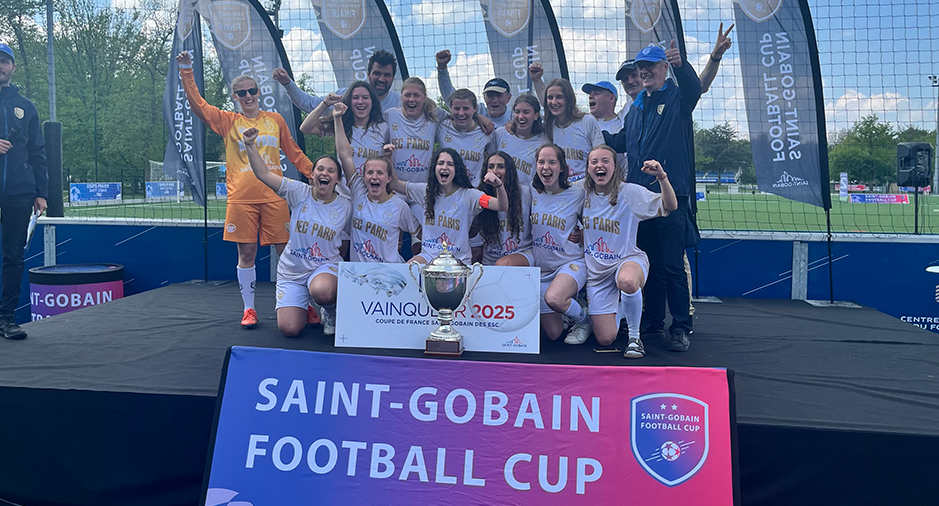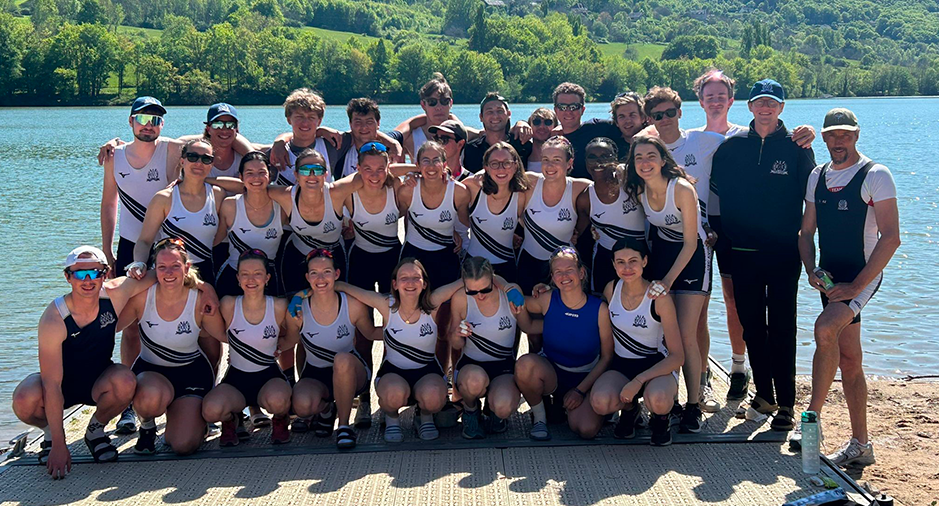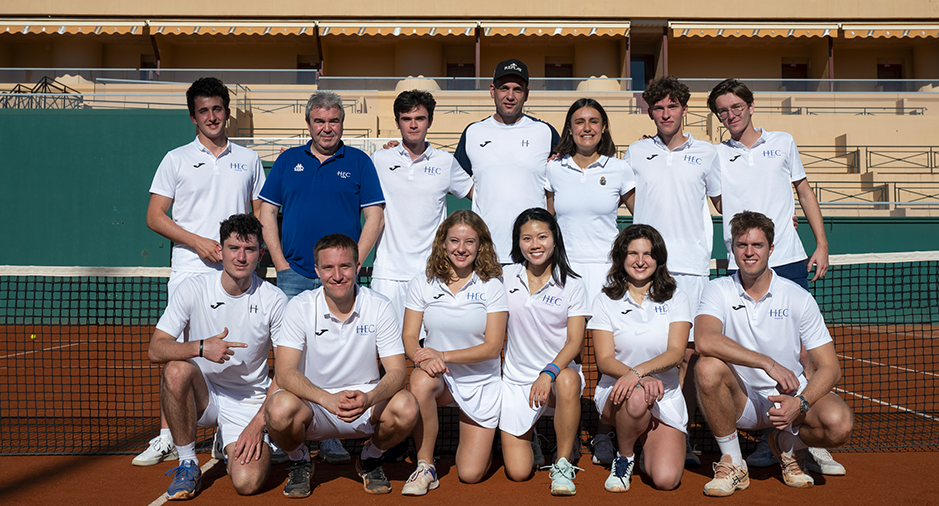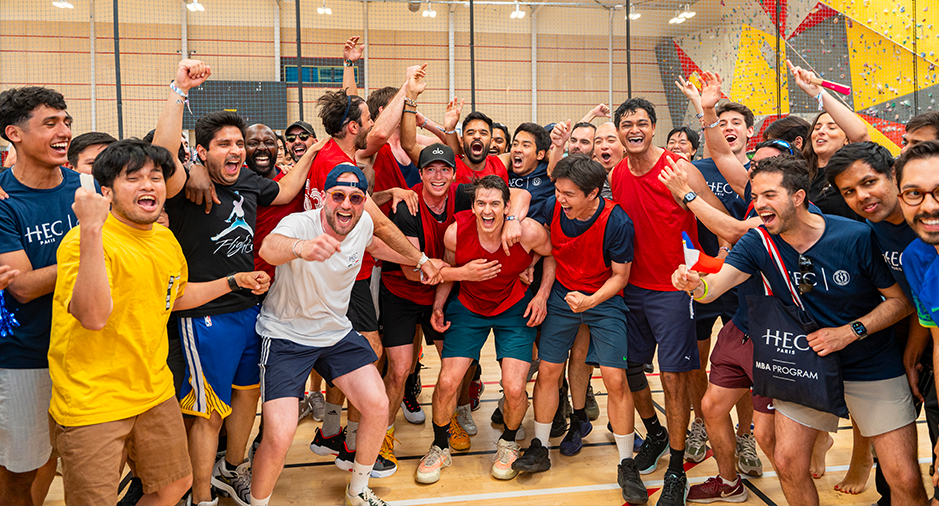Sport at the heart of student life at HEC
From May 1 to 3, the Jouy-en-Josas campus hosted more than 1,500 students from 16 European business schools for the MBAT, the European MBA tournament. HEC's students ranked second this year. A nice performance...among others, since sports is encouraged at HEC, mainly to promote integration, explains Jean Gilles Vitti, director of HEC's sports department.

Early May, HEC Paris hosted the 34th edition of the MBAT and ranked 2nd. Is the event representative of HEC's performance in the domain of sports?
The MBAT is indeed a nice tournament, a great way of showcasing our infrastructure, but it only concerns MBA students. There is much more to sports at HEC! We had a good year in terms of sports competitions. To mention a few: we won the French business school's mixed tennis cup and for the third year, the women's football cup that took place at Clairefontaine. We also ranked 7th in the French university mixed badminton championships.
Why and how is sports encouraged at HEC?
To begin with, sports is obligatory during one term of the grande école program. We are lucky to have students who are eager to catch up after two years of prep school without any exercise. And second, sports is a way to promote integration, it brings everyone together, no matter their cultural or social background. We find ourselves with motley crews on our teams, for example in basketball, with Americans and Russians playing together alongside students from Asian countries... Cultures mixing in that way is what makes sports interesting and helps HEC shine on the pitch.
Integration is not only cultural, if there are mixed male/female teams?
That's right, since all sports club are mixed, with a male/female co-presidency, apart from four specific clubs – men's football, women's football, men's rugby, women's rugby. Female sports have really grown over the past two decades. We were among the first to believe in women's rugby and to develop it. Nowadays we have roughly 800 students, one third of whom are female, who take part in university-level sporting events. Our goal is to reach parity, whether for competitive sports or just for fun. Altogether, 2,000 out of some 2,300 students practice at least one of the 30 physical activities on offer, be it on a daily or weekly basis.
What kind of activities are available for students with disabilities?
We have created a program, sport santé adapté [adapted health sports] for students who don't fit into regular activities. For example students with Asperger's syndrome aren't comfortable with team sports, because they bring too many people together and require social interactions that are too complicated; yet they can have fun with sport santé in small groups, or even individually. This is valid for permanent and temporary disabilities; meaning a student who damaged their knee ligaments for example may follow this program, as may those who suffer from other people's scrutiny, for example if they are overweight. We are setting up metrics and they show that students who make the effort to practice sport santé continue to do so even after the program ends.
The wide range of activities on offer is likely not unrelated to the fact that the campus is well equipped?
We are lucky to have a vast campus, with lots of infrastructure, that we are continuously adapting. We keep abreast of trends and take into account cultural aspects, because nearly every other student is international. For instance, cross fit was marginal until 7 or 8 years ago, and with an impulse from international students, we created a dedicated room. Cross fit is a very mixed sport in terms of gender parity, nationalities and programs, you are just as likely to see L3 students as those from specialized Master's and MBAs. Also, 5 years ago, we turned a 300m-long underground parking lot into an area for cross training: we set up a 60m-long track, created a climbing wall and installed gymnastics apparatus. This physical preparation area is now open 24/7. Anyone can go there to burn energy, the boxing punching bags are good to let off steam!
Mens sana in corpore sano then?
Team sports and individual sports are great outlets and help liberate oneself. We started boxing some 15 years ago and it has become popular; many girls practice and it helps them gain self-confidence and manage stress. Besides, joining a sports club is another way to network. When you play together, it creates lasting bonds. It's particularly visible in men's football and rugby: the alumni teams continue playing together after graduating and with good results, since the football club reached quarter finals in France's corporate cup.
You have been at HEC since 1991, how have you seen sports change over the years?
I will retire soon and am never bored! When you work with young people, you are kept on your toes because you have to question yourself every year. No academic year resembles the previous one. Ties are created with the students; some of the ones I knew here now hold ministerial positions and we still talk. Sports is above all about human experiences. That's the beauty of it, you give students the opportunity to practice something they would never have tried before. Most of the students who do women's rugby had never touched a ball before, and then they continue after their studies. Another example is Clarisse Crémer, who had done a few sailing regattas before joining HEC but really got into sailing here; she is now one of the world's best skippers. It's a nice evolution.


